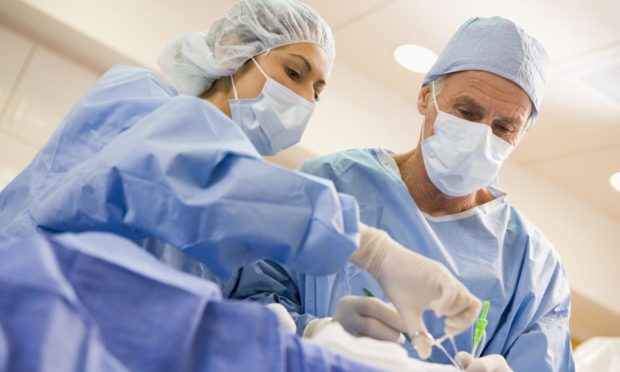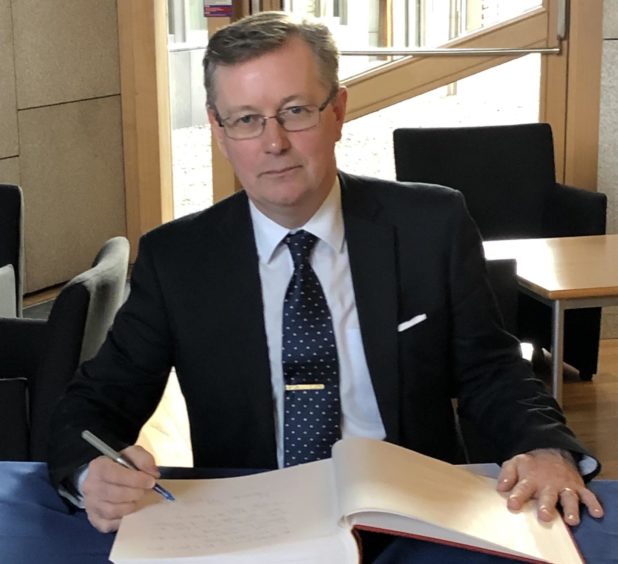A new study has revealed an “alarming” drop in the number of operations being carried out across Tayside and Fife.
Year-on-year statistics have confirmed that only 870 planned surgeries took place in Tayside in January this year, compared to 2,204 the year before – a drop of around 60%.
In Fife, the discrepancy is even bigger with just 197 elective operations in January, around 85% less than the 1,394 total from the same period in 2020.
Health chiefs warned last year that operations could be shelved to free up resources to tackle an increase in Covid cases coupled by the normal challenges winter brings, but Conservative Mid-Scotland and Fife MSP Alexander Stewart has called for patients to be given guarantees their procedures will be carried out as soon as possible.
Mr Stewart, who is the Tory Shadow Minister for Local Government, said: “Whilst it is right that NHS Fife and NHS Tayside has focused on tackling rising Covid cases, SNP ministers must not forget about patients who are waiting on vital operations and procedures.
“Precisely four months ago to the day I highlighted a significant drop in operations and this trend seems to be continuing.”
Mr Stewart said: “Many of these patients will be in pain and significant discomfort, so we need to urgently see a plan from SNP Ministers which will give them hope that they will be treated soon.
“There has been an alarming drop in the number of procedures carried out compared to last January.
“As the situation in our hospitals regarding Covid hopefully continues to improve, hundreds of local patients cannot wait a moment longer to have procedures which have been cancelled as a result of the pandemic.”
Scaled back programme
In Fife, the number of operations scheduled per month had risen from a low of 158 in May to 1,132 in September, but the numbers have dropped off since then.
Similarly in Tayside, the number of elective ops rose from a low of 247 in May last year, to a high of 1,475 in October.
NHS Fife director of acute services, Claire Dobson, said: “In line with Scottish Government resilience planning, NHS Fife scaled back much of its elective programme at the height of the Covid-19 pandemic to ensure that it could continue to provide urgent care to those patients who needed it most.
“Patient safety is our single biggest priority and while we remobilised our elective programme during the summer, the requirement for enhanced infection control protocols makes it particularly challenging to perform the number of procedures carried out prior to the onset of the pandemic.
“Despite these challenges, we remain committed to maximising the number of elective procedures carried out and our clinical staff continue to triage patients to ensure those with the greatest clinical need are seen soonest.”
Redesigned health care
A spokeswoman for NHS Tayside added: “Our staff have been working incredibly hard since the start of the pandemic to redesign healthcare services allowing us to restart procedures which were necessarily paused as we managed the immediate response to Covid-19.
“NHS Tayside saw a significant increase in the number of Covid-19 admissions to both our wards and critical care beds in January 2021.
“We are now seeing the numbers reduce and will begin to remobilise services that were temporarily paused.”
She said: “Some planned surgery continued across Tayside during this time, with further services remobilising from mid-March
“This increase in activity is in addition to emergency, urgent and cancer care which have all continued to be delivered since the onset of the pandemic in March.”
The spokeswoman added: “We would like to thank our staff for their ongoing efforts and are grateful for the support of our patients and the people of Tayside as we continue to meet the challenges of COVID-19.”
A Scottish Government spokesman said: “We understand it has been difficult for those who have had operations cancelled. However, as we see Covid-19 case numbers decline we are very focused on remobilising those services we have necessarily reduced.”
He added that the government was investing around £200 million in a network of new elective and diagnostic treatment centres, including a £35 million centre at Perth Royal Infirmary.
“NHS Louisa Jordan has also played a vital role in NHS re-mobilisation plans through the provision of a non-Covid pathway for urgent outpatient and diagnostic appointments,” he said. “This arrangement has allowed the NHS to concentrate on providing an immediate response at local level.
“The NHS Golden Jubilee also continues to see patients from a wide range of specialities which include cancer, orthopaedics and ophthalmology, and the independent sector is supporting NHS Scotland with elective care to ensure clinically urgent patients can continue to be seen and treated in Covid-free environments.”

